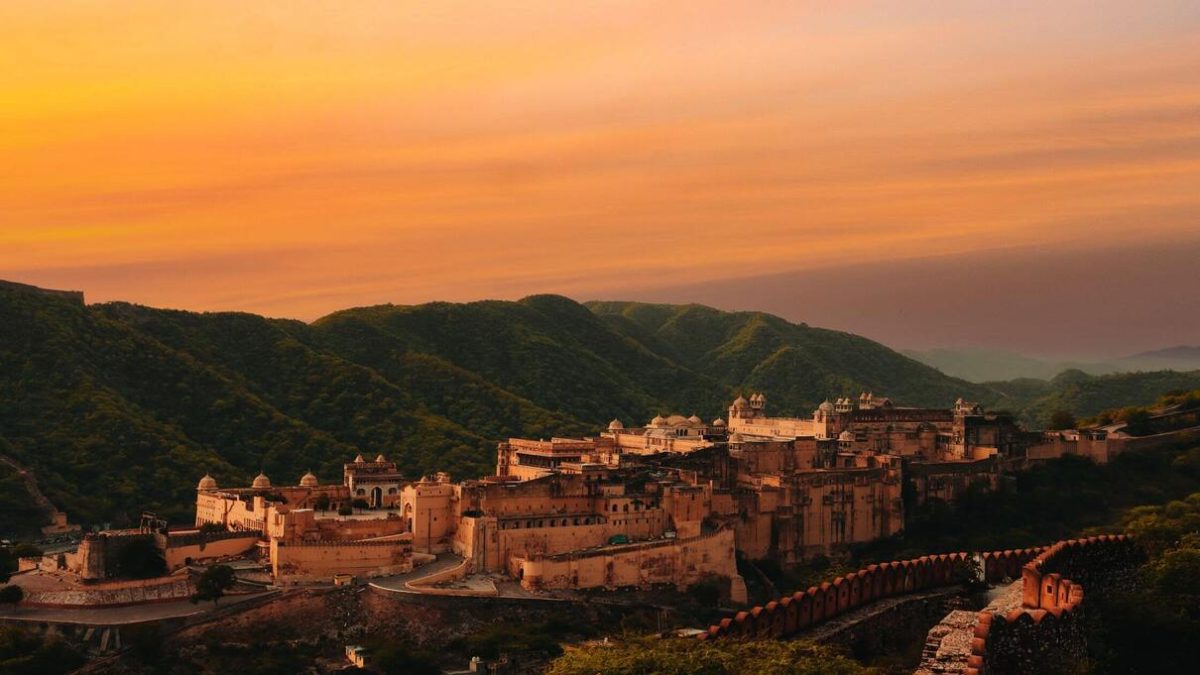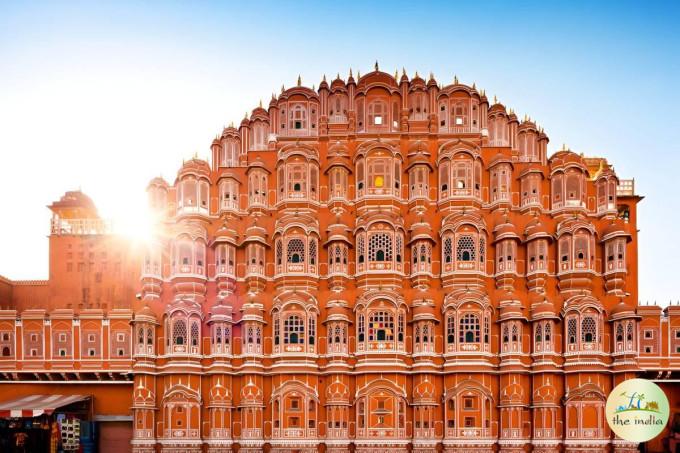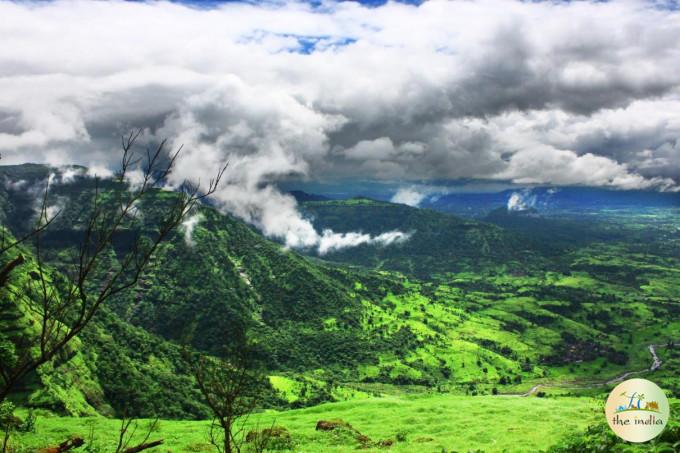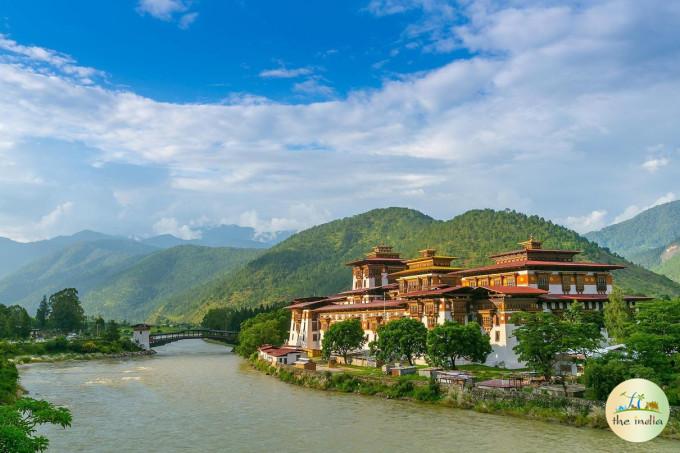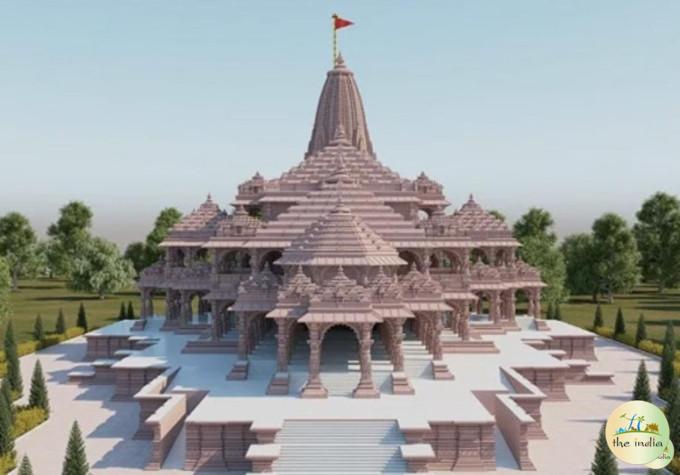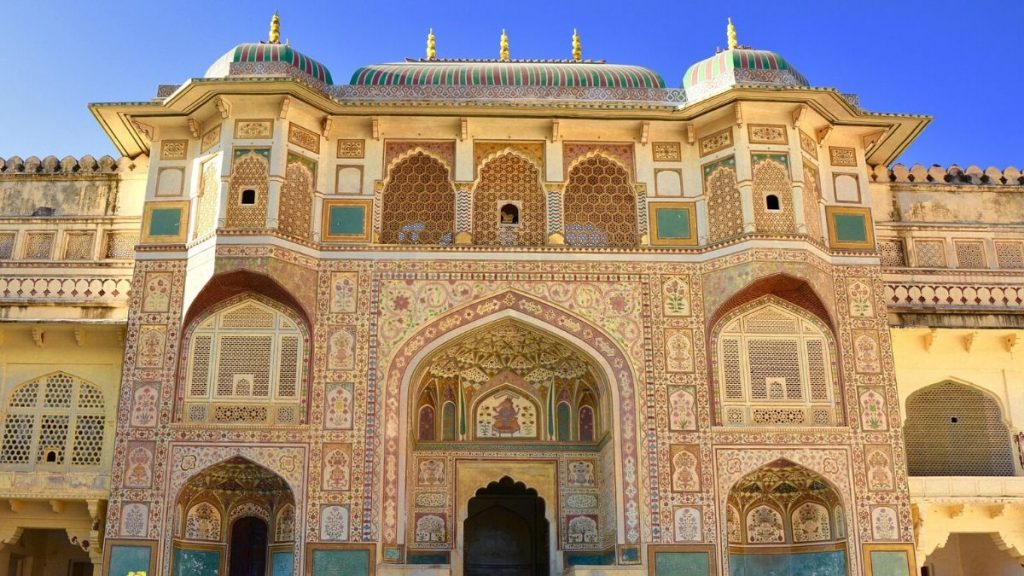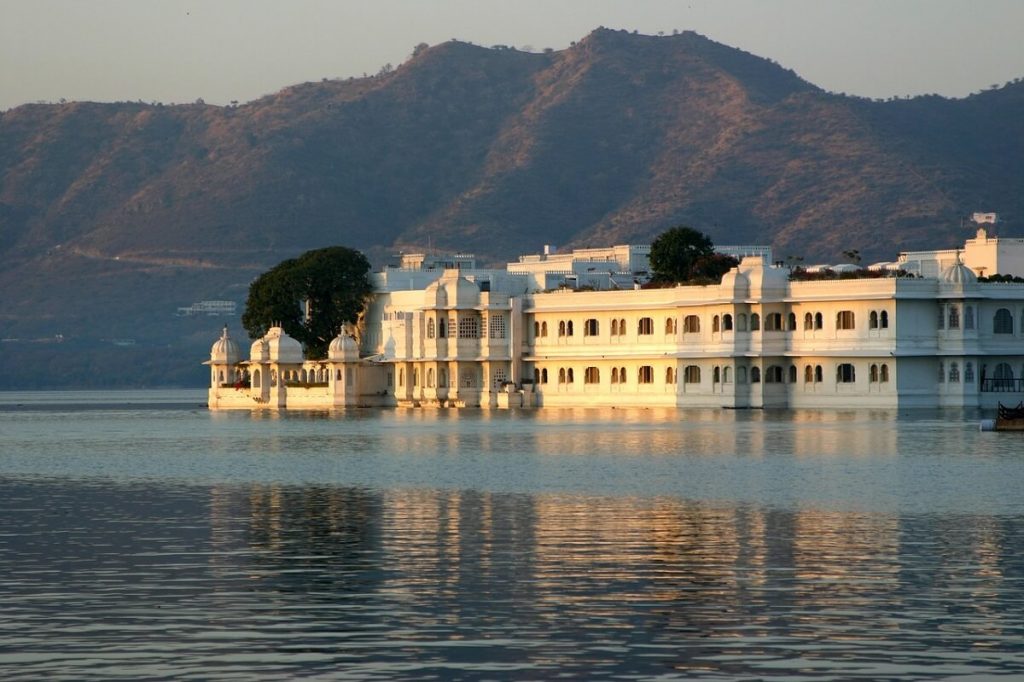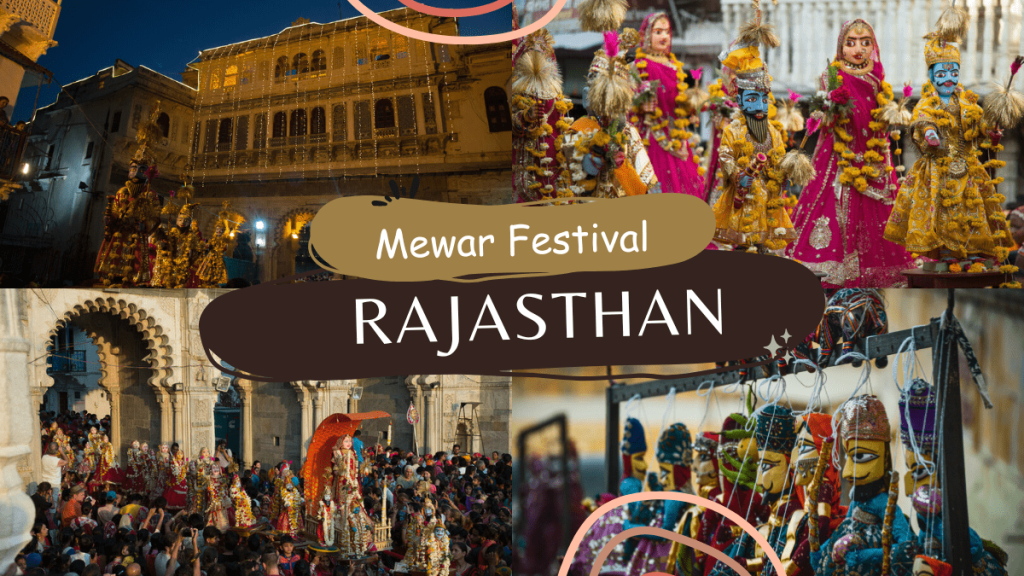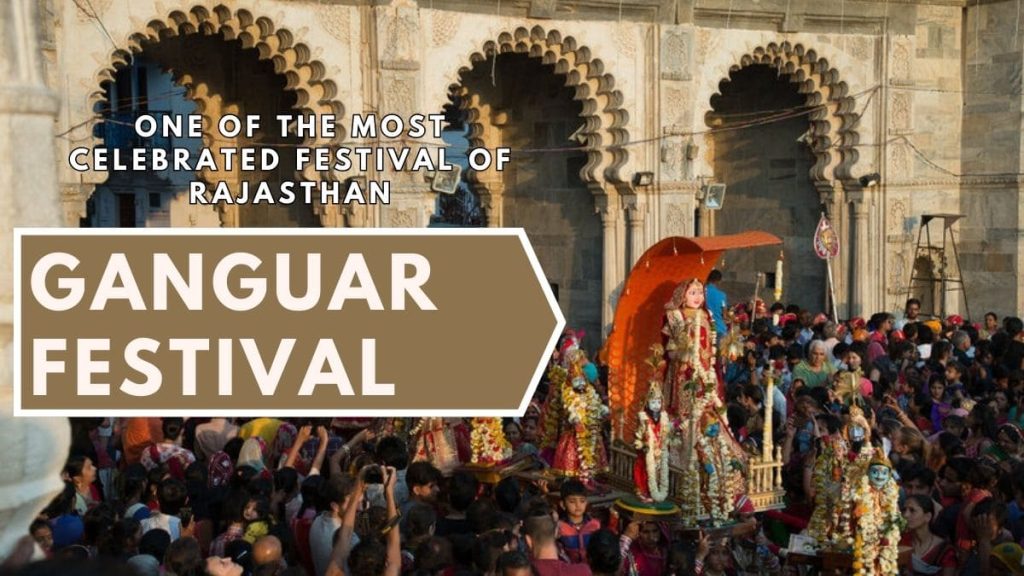Having visited Rajasthan, I can attest to the awe-inspiring beauty and grandeur of the state’s forts and palaces. From the iconic Amber Fort in Jaipur to the regal Mehrangarh Fort in Jodhpur, each structure offers a unique glimpse into Rajasthan’s rich history and culture. These architectural marvels not only served as military strongholds but also as centers of political power and cultural patronage. They are a testament to the state’s glorious past and a source of pride for the locals, who have preserved and celebrated them for generations.
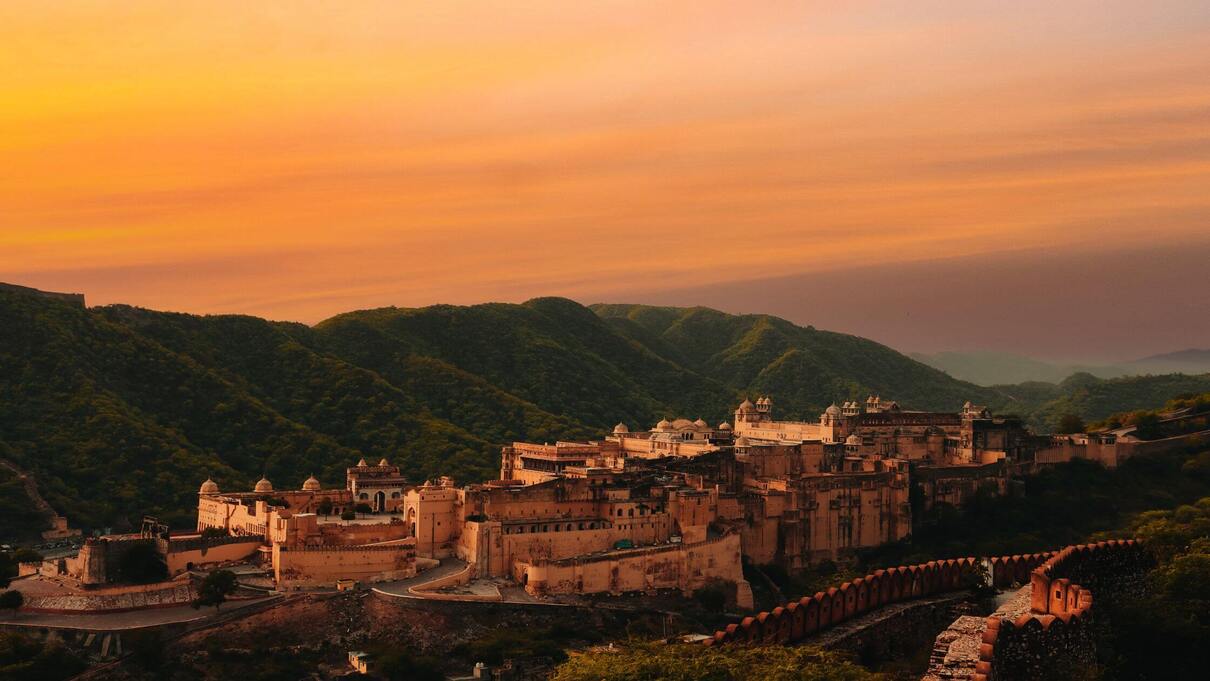
I was struck by the importance of forts and palaces in the state’s history and culture. These grand structures are not only architectural marvels but also symbols of the state’s royal past. The forts and palaces served as centers of power and governance for the Rajput rulers, and many have withstood the test of time to tell their stories. Walking through the halls and courtyards of these magnificent structures was like stepping back in time and experiencing the grandeur of Rajasthan’s rich cultural heritage.
Famous Forts in Rajasthan:
Let me take you down through the majestic state of India not just via me but several others who have experienced this grandeur beyond words.
1. Amer Fort, Jaipur:
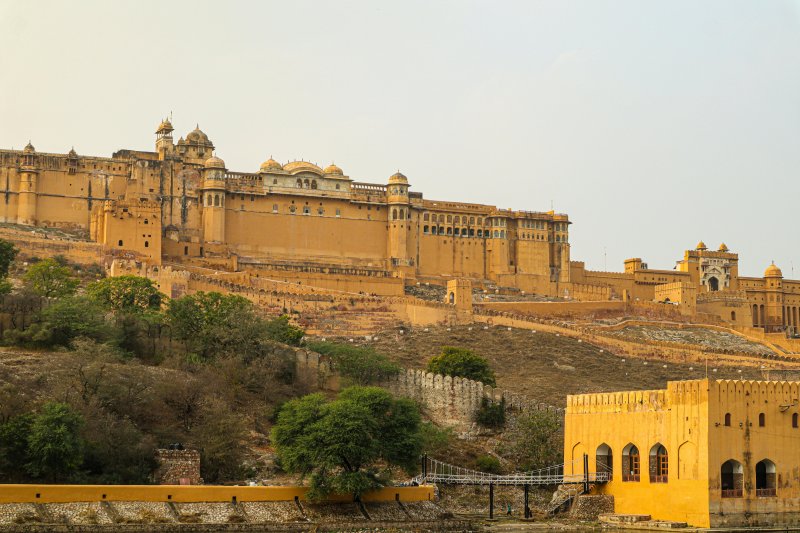
One such jewel in the crown of Rajasthan’s architectural marvels is the Amer Fort and Palace in Jaipur. The fort’s red sandstone walls, intricate carvings, and stunning courtyard gardens make it a must-visit destination for anyone traveling to Rajasthan. The palace inside the fort, with its luxurious rooms and intricate mirror work, is a testament to the opulence of the Rajput rulers who once called it home.
Visitor Information:
- Timings: 8:00 am to 9:00 pm
- Tickets: Rs 100 (Indians), Rs 10 (students), Rs 550 (foreigners)
- Best Time to Visit: October to March
- How to Reach: About 13 km from Jaipur city. You can take taxi, auto or bus.
- Nearby Attractions: Jal Mahal, Nahargarh Fort, Jaigarh Fort, Hawa Mahal.
- Special Experience: Light & Sound Show in evening, Sheesh Mahal (mirror palace), elephant ride.
2. Jaigarh Fort, Jaipur:
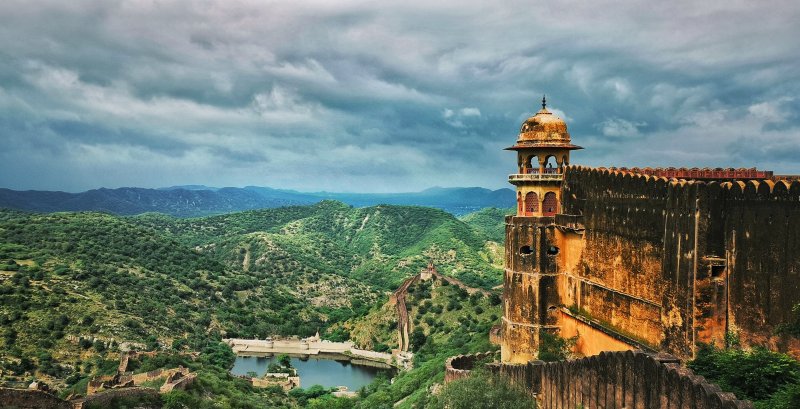
Another spectacular fort that dominates the skyline of Jaipur is the Jaigarh Fort, perched atop a hill overlooking the city. This fort was built in the 18th century and is famous for its impressive collection of medieval cannons, including the world’s largest cannon on wheels. The fort also houses the exquisite Jaivana cannon, a marvel of engineering that was designed to fire massive cannonballs that weighed over 50 kg. Visitors can explore the fort’s sprawling courtyards, watchtowers, and royal armory, and soak in the stunning views of Jaipur from the fort’s ramparts.
Visitor Information:
- Timings: 9:00 am – 6:30 pm
- Tickets: Rs 35 (Indians), Rs 85 (foreigners).
- Best Time to Visit: October to March. Avoid summer afternoons, it gets hot.
- How to Reach: Located 15 km from Jaipur city.
- Nearby Attractions: Amer Fort (connected by a secret passage), Nahargarh Fort, Jal Mahal.
- Special Experience: World’s largest cannon on wheels – Jaivana. Great view of Aravalli hills and Jaipur city.
Also Read: Best Tourist Places To Visit near Jaipur Within 100 Kms
3. Laxmangarh Fort, Shekhawati:
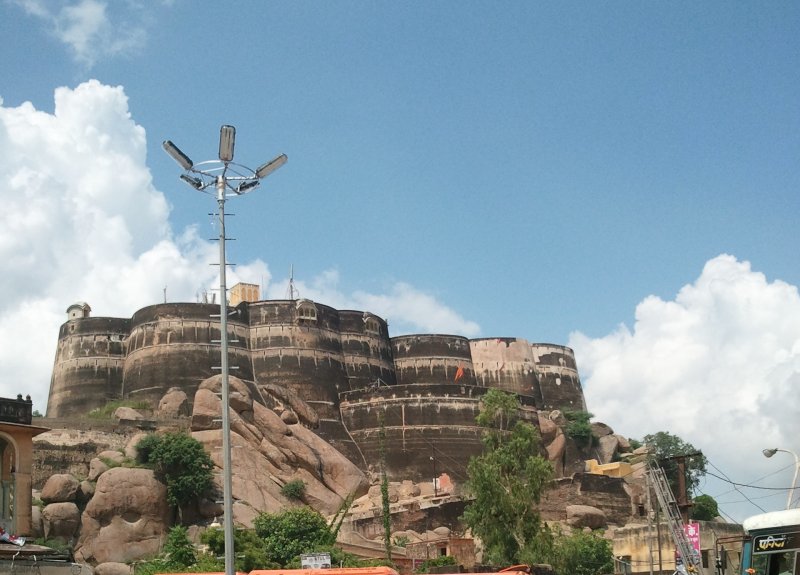
Laxmangarh Fort, located in the Shekhawati region of Rajasthan, is a must-visit destination for history buffs and architecture enthusiasts. The fort was built in the early 19th century and boasts of stunning Rajasthani-style frescoes and intricate carvings on its walls. Inside the fort, visitors can explore the various rooms, including the Diwan Khana, Phool Mahal, and Sheesh Mahal, each showcasing the rich heritage of the region. The fort also offers spectacular views of the surrounding landscape, making it a perfect spot for photography and sightseeing.
Visitor Information:
- Timings: 8:00 am – 8:00 pm.
- Best Time to Visit: October to March
- How to Reach: Located in Sikar district, about 148 km from Jaipur.
- Nearby Attractions: Shekhawati havelis with fresco paintings, Ramgarh, Nawalgarh.
- Special Experience: Famous for fresco paintings on fort walls. Great spot for photography.
4. Mandawa Fort, Shekhawati:
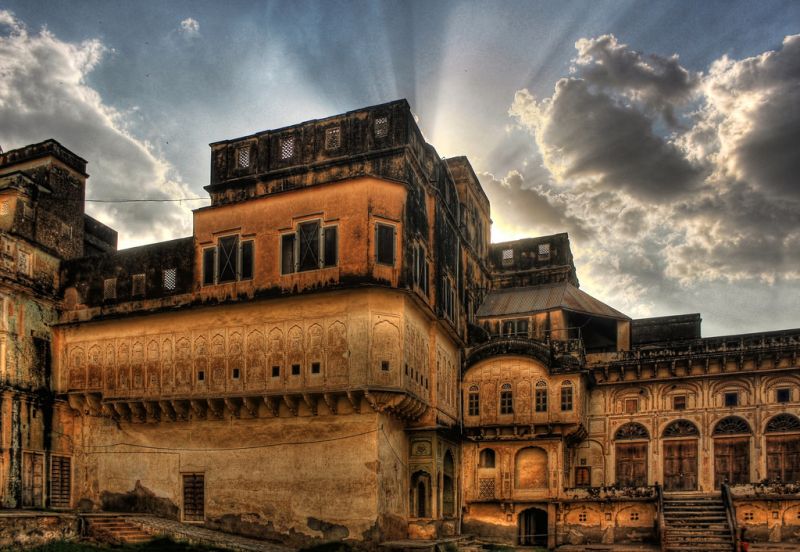
Mandawa Fort, also located in the Shekhawati region, is another gem of Rajasthan’s architectural heritage. The fort was built in the 18th century and features a stunning blend of Rajput and Mughal architectural styles. Now converted into a luxurious hotel, the visitors can explore the various courtyards, balconies, and halls of the fort, each adorned with beautiful murals and paintings. The fort also houses a museum that displays a vast collection of traditional Rajasthani artwork, including paintings, textiles, and sculptures.
Visitor Information:
- Best Time to Visit: Winter months (October to February).
- How to Reach: About 172 km from Jaipur.
- Nearby Attractions: Mandawa town havelis, Dundlod Fort, Nawalgarh.
- Special Experience: Staying inside Mandawa Fort hotel. Traditional murals and museum collection.
5. Ratangarh Fort, Shekhawati:
Ratangarh Fort, situated in the town of Ratangarh in Shekhawati, is another fascinating destination for history lovers. The fort dates back to the 18th century and features an impressive array of ramparts, gateways, and towers. Inside the fort, visitors can explore the various palaces, temples, and courtyards, each adorned with exquisite carvings and paintings. The fort also offers a glimpse into the rich history of the region, with displays of ancient weaponry and armor. The stunning views of the surrounding countryside from the top of the fort are not to be missed.
Visitor Information:
- Timings: 7:00 am – 5:00 pm (Sunday Closed)
- Best Time to Visit: November to February.
- How to Reach: Located in Churu district, about 220 km from Jaipur. Easily accessible by train and road.
- Nearby Attractions: Churu havelis, Tal Chhapar Blackbuck Sanctuary.
- Special Experience: Best place for history lovers, with temples and courtyards inside.
6. Lohagarh Fort, Bharatpur:
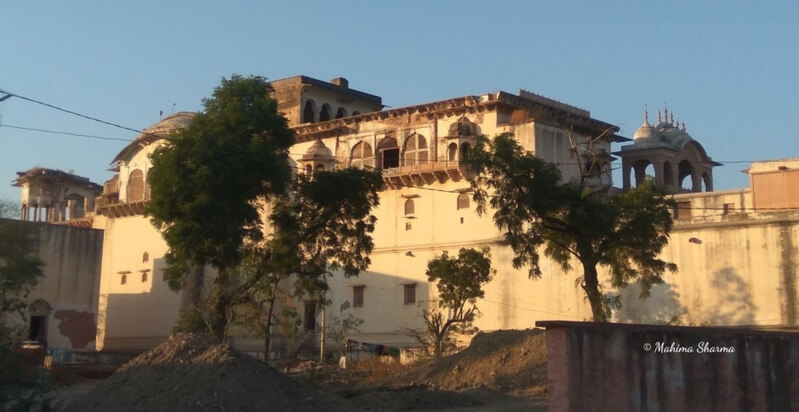
Lohagarh Fort, located in Bharatpur, India, is a must-visit destination for anyone interested in exploring the rich history of India. As soon as you step foot into the fort, you’ll be transported back in time to an era of bravery and valor. The fort is surrounded by a moat, and its walls are made of solid stone, making it an impregnable fortress. Inside the fort, you’ll find several palaces and temples that are worth exploring, such as Kishori Mahal, Mahal Khas, and Moti Mahal. The fort also houses a museum that displays various artifacts and weapons used by the Rajput kings.
Visitor Information:
- Timings: 10:00 am – 6:00 pm.
- Tickets: Rs 25 (Indians), Rs 300 (foreigners).
- Best Time to Visit: November to March.
- How to Reach: About 3 km from Bharatpur Railway Station. Easily reached by auto or cab.
- Nearby Attractions: Keoladeo National Park, Bharatpur Palace, Deeg Palace.
- Special Experience: Strong walls and moat. Lohagarh is called the “Invincible Fort” as it was never captured.
For better insight, read the detailed visit of Lohagarh Fort at the links below:
- Lohagarh Fort – The Forgotten Heritage of Bharatpur, Rajasthan: Part 1
- Lohagarh Fort – The Forgotten Heritage Of Bharatpur, Rajasthan: Part 2
7. Ranthambore Fort, Sawai Madhopur:
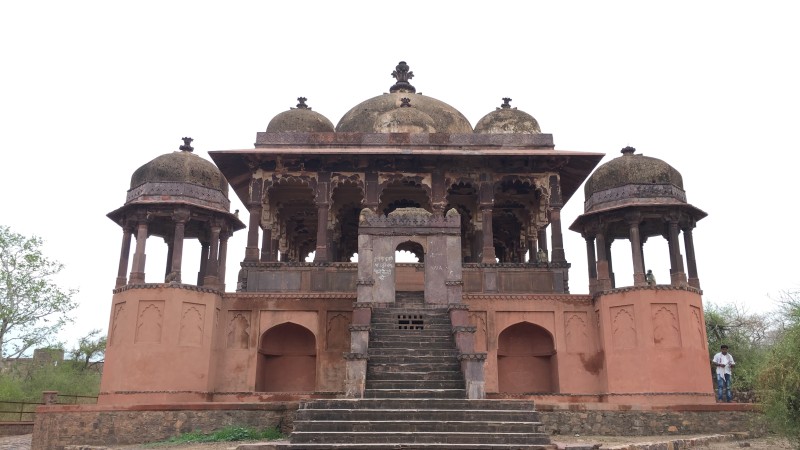
Ranthambore Fort, located in Sawai Madhopur, India, is a magnificent fort that is steeped in history and culture. The fort is located atop a hill and offers breathtaking views of the surrounding countryside. As you make your way up the hill, you’ll come across several gates and walls that are designed to keep intruders out. Once you reach the top, you’ll find several buildings and temples that are worth exploring, such as the Badal Mahal, Rani Mahal, and Suraj Pol. You can also catch a glimpse of the elusive majestic tigers that roam the surrounding Ranthambore National Park.
Visitor Information:
- Timings: 5:00 am – 7:00 pm.
- Tickets: Rs 20 (Indians), Rs 100 (foreigners).
- Best Time to Visit: November to March
- How to Reach: About 3 km from Bharatpur Railway Station. Easily reached by auto or cab.
- Nearby Attractions: Keoladeo National Park, Bharatpur Palace, Deeg Palace.
- Special Experience: Strong walls and moat. Lohagarh is called the “Invincible Fort” as it was never captured.
8. Taragarh Fort, Bundi:
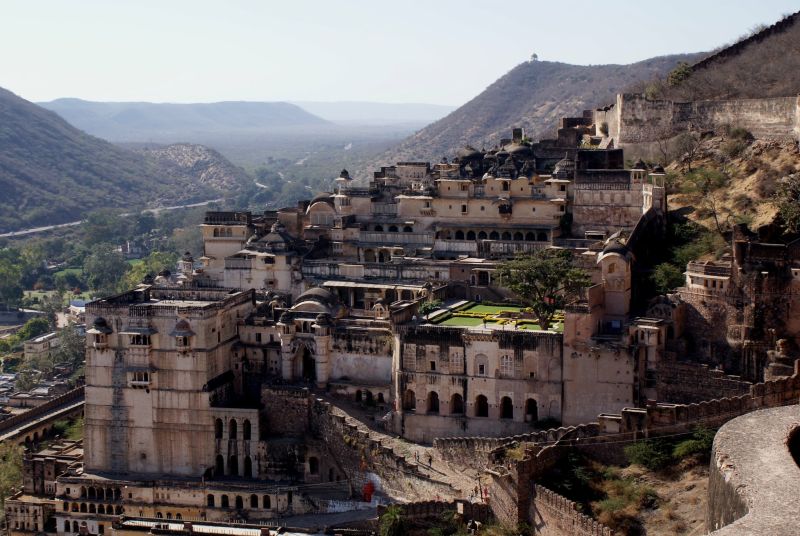
Taragarh Fort also known as Bundi Fort, located in Bundi, India, is a hidden gem that is worth exploring. The fort is perched atop a hill and offers stunning views of the surrounding countryside. As you make your way up the hill, you’ll come across several gates and walls that are adorned with intricate carvings and designs. Once you reach the top, you’ll find several palaces and temples that are worth exploring, such as the Rani Mahal, Diwan-e-Aam, and Hathi Pol. The fort also houses a massive water tank that was used to supply water to the surrounding areas during times of drought.
Visitor Information:
- Timings: 8:00 am – 5:00 pm.
- Tickets: Rs 100 for Indians.
- Best Time to Visit: October to February. Best visited early morning for good views.
- How to Reach: About 2 km from Bundi city center. Auto rickshaws are available. Bundi is 35 km from Kota.
- Nearby Attractions: Bundi Palace, Raniji ki Baori (stepwell), Sukh Mahal.
- Special Experience: Beautiful wall paintings, Rani Mahal, and a huge water reservoir inside the fort.
9. Junagarh Fort, Bikaner:
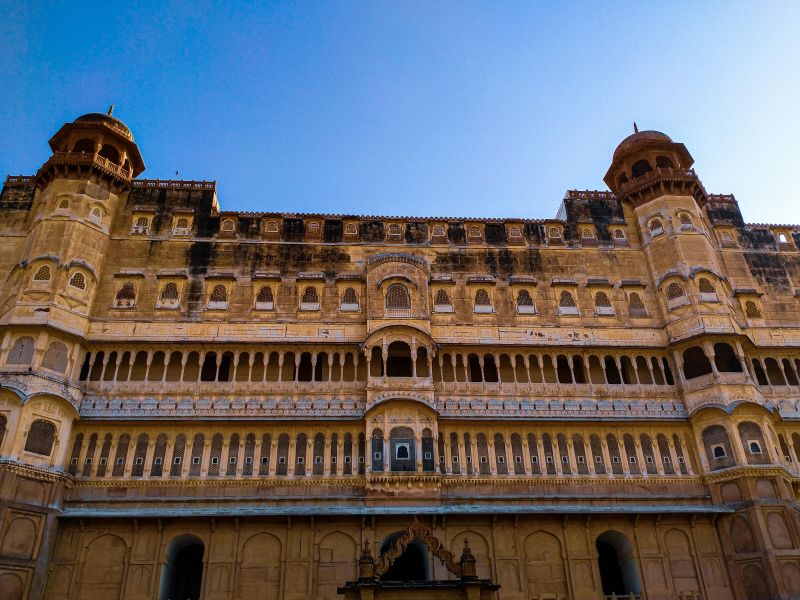
Junagarh Fort in Bikaner is a marvel of Rajput architecture that is a must-visit for history buffs and architecture enthusiasts. The fort is home to several impressive palaces and temples, including the Anup Mahal, Ganga Niwas, and Chandra Mahal. The fort also houses a museum that showcases the rich heritage and culture of Bikaner. The exquisite stone carvings and delicate latticework in the fort will leave you spellbound.
Visitor Information:
- Timings: 10:00 am – 4:30 pm
- Tickets: Rs 50 (Indians), Rs 300 (foreigners).
- Best Time to Visit: November to February.
- How to Reach: Located in the city of Bikaner, about 2 km from the railway station. Autos and cabs easily available.
- Nearby Attractions: Lalgarh Palace, Gajner Palace, Karni Mata Temple (Deshnok).
- Special Experience: Excellent museum with weapons, manuscripts, and artifacts. Stunning Anup Mahal with gold leaf work.
Also Read: Traditional Bikaner Camel Festival 2023 of Rajasthan
10. Jaisalmer Fort or Sonar Quilla, Jaisalmer:
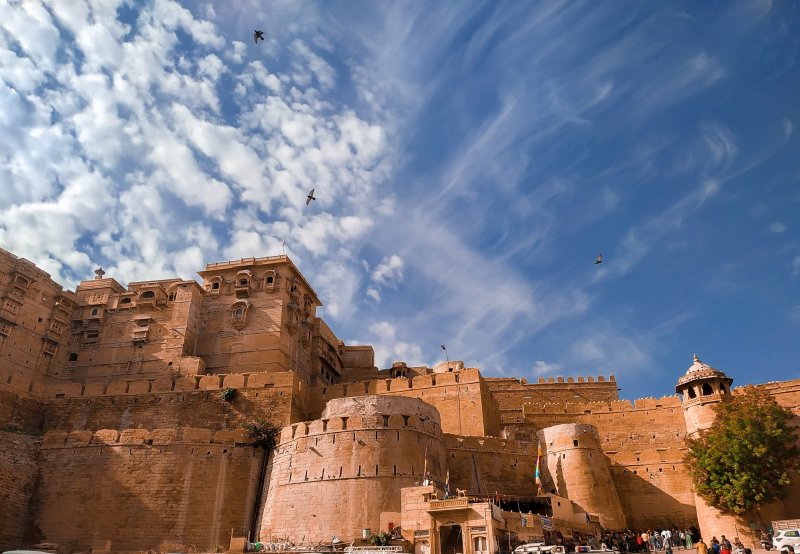
Jaisalmer Fort, also known as Sonar Quilla, is a stunning sandstone fort that rises majestically from the golden sands of the Thar desert. The fort is a UNESCO World Heritage Site and is one of the largest living forts in the world. Inside the fort, you will find a labyrinth of narrow streets, ornate Jain temples, magnificent palaces, and colorful shops selling handicrafts and textiles. The fort’s stunning architecture and breathtaking views of the desert will leave you mesmerized.
Visitor Information:
- Best Time to Visit: October to March. Evenings and early mornings are magical with golden glow.
- How to Reach: Located in Jaisalmer city center. 2 km from railway station, autos and cabs available.
- Nearby Attractions: Patwon ki Haveli, Nathmal ki Haveli, Gadisar Lake, Sam Sand Dunes.
- Special Experience: Sunset from fort walls, shopping in narrow lanes, and visiting Jain temples inside the fort.
Also Read: Jaisalmer Desert Festival
11. Mehrangarh Fort, Jodhpur:
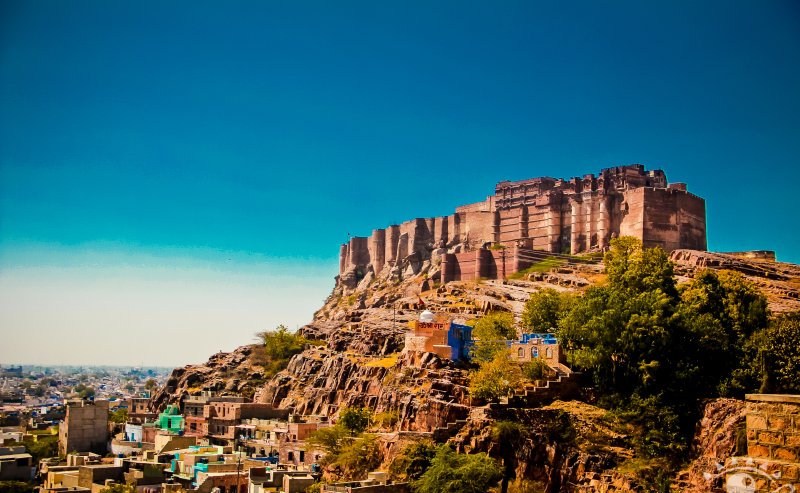
Mehrangarh Fort in Jodhpur is a formidable fort that sits atop a rocky hill, overlooking the blue city of Jodhpur. The fort is home to several impressive structures, including the Moti Mahal, Phool Mahal, and Sheesh Mahal, which are adorned with intricate mirrorwork and exquisite paintings. The fort also houses a museum that showcases a rich collection of weapons, textiles, and artifacts. The stunning views of the city and the desert from the fort’s ramparts will take your breath away.
Visitor Information:
- Timings: 9:00 am – 5:00 pm.
- Tickets: Rs 100 (Indians), Rs 600 (foreigners)
- Best Time to Visit: October to March. Sunset view from ramparts is amazing.
- How to Reach: About 5 km from Jodhpur railway station. Autos, taxis, or Uber available.
- Nearby Attractions: Jaswant Thada, Umaid Bhawan Palace, Clock Tower Market.
- Special Experience: Zipline adventure across the fort walls, museum collections, and cultural events like Rajasthan International Folk Festival.
12. Chittorgarh Fort, Chittorgarh:
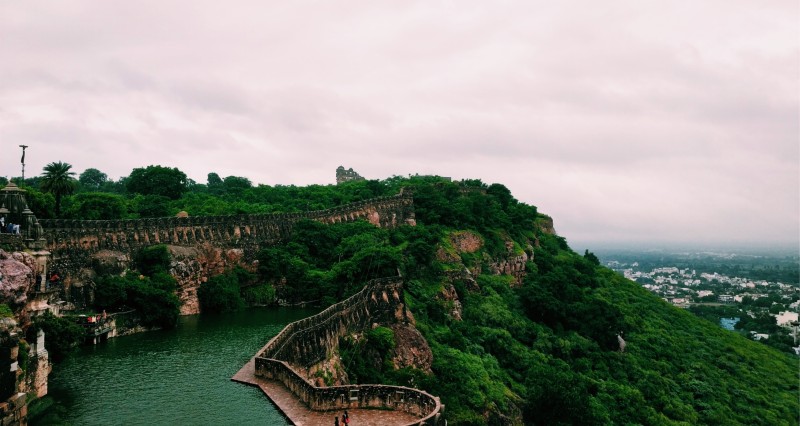
Chittorgarh Fort, located in the mesmerizing city of Chittorgarh, is a true testament to the valor and bravery of the Rajput warriors. As you enter the fort, you will be awestruck by the massive walls, intricate carvings, and intricate architecture that surrounds you. Within the fort, there are many places worth visiting, such as the Vijay Stambh, Kirti Stambh, and Rana Kumbha Palace. The palace is a stunning display of Rajput art and culture, with beautifully painted walls, intricate sculptures, and stunning courtyards. The Padmini Palace, another notable attraction, is surrounded by water and is said to have been the residence of Queen Padmini.
Visitor Information:
- Timings: 9:00 am – 6:00 pm.
- Tickets: Rs 15 (Indians), Rs 600 (foreigners).
- Best Time to Visit: October to February. Light & sound show in evening is worth watching.
- How to Reach: About 6 km from Chittorgarh railway station. Autos and taxis available.
- Nearby Attractions: Rani Padmini’s Palace, Vijay Stambh, Kirti Stambh, Gaumukh Reservoir.
- Special Experience: Sound & Light Show, exploring Rana Kumbha Palace ruins, and panoramic views from Vijay Stambh.
13. Kumbhalgarh Fort, Kumbalgarh:
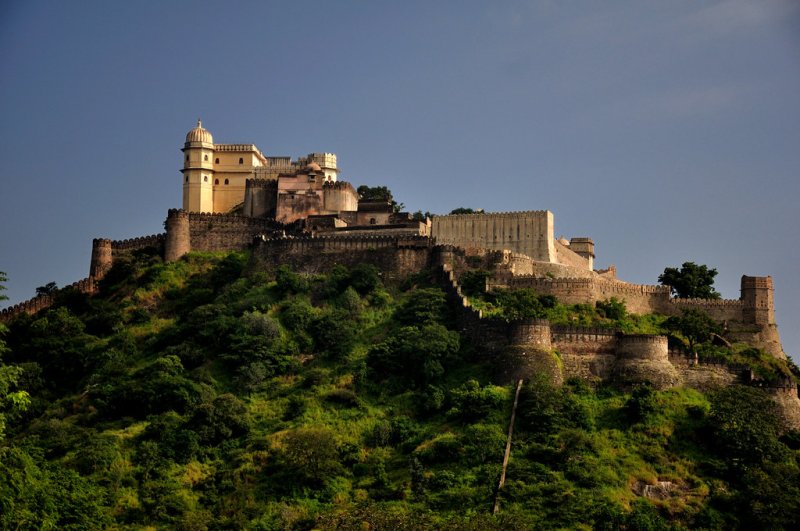
Kumbhalgarh Fort, located in the picturesque town of Kumbhalgarh, is a sight to behold. The fort’s massive walls stretch for over 36 kilometers, making it the second-longest wall in the world after the Great Wall of China. Inside the fort, there are many places worth exploring, such as the Badal Mahal, Kumbha Palace, and Vedi Temple. The Badal Mahal, or Cloud Palace, is located at the top of the fort and offers breathtaking views of the surrounding landscape. The Kumbha Palace, with its beautifully carved windows and doors, is another must-see attraction. The Vedi Temple, a small but beautiful shrine, is adorned with intricate carvings and sculptures.
Visitor Information:
- Timings: 9:00 am – 5:00 pm. (Sunday Closed)
- Tickets: Rs 40 (Indians), Rs 600 (foreigners).
- Best Time to Visit: October to March. Winter evenings are magical.
- How to Reach: About 85 km from Udaipur. Cabs and buses available.
- Nearby Attractions: Kumbhalgarh Wildlife Sanctuary, Badal Mahal, Vedi Temple.
- Special Experience: Night light show at the fort, trekking around the massive walls, panoramic view from Badal Mahal.
14. Neemrana Fort, Delhi-Jaipur Highway:
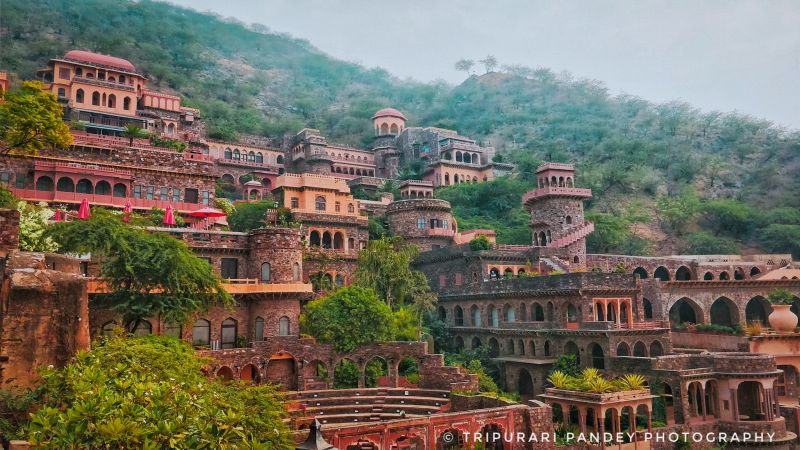
Neemrana Fort, located on the Delhi-Jaipur Highway, is a perfect blend of history and luxury. The fort, which dates back to the 15th century, has been converted into a stunning heritage hotel. Inside the fort, there are many places worth exploring, such as the hanging gardens, the swimming pool, and the Ayurvedic spa. The hanging gardens, located on several levels, offer stunning views of the surrounding landscape. The swimming pool, located in a picturesque courtyard, is the perfect place to relax and unwind. The Ayurvedic spa, with its soothing massages and treatments, is the perfect way to rejuvenate your mind and body.
Visitor Information:
- Best Time to Visit: August to March. Summer months can be very hot.
- How to Reach: Located on Delhi–Jaipur highway (NH48), about 120 km from Delhi and 150 km from Jaipur. Easily accessible by car/taxi.
- Nearby Attractions: Baori (stepwell) at Neemrana, Japanese Industrial Zone.
- Special Experience: Staying in a heritage hotel, zipline adventure, rooftop pools and gardens.
Read Also: 25 Best Places to Visit Near Delhi with Family
Famous Palaces in Rajasthan:
1. City Palace, Jaipur:
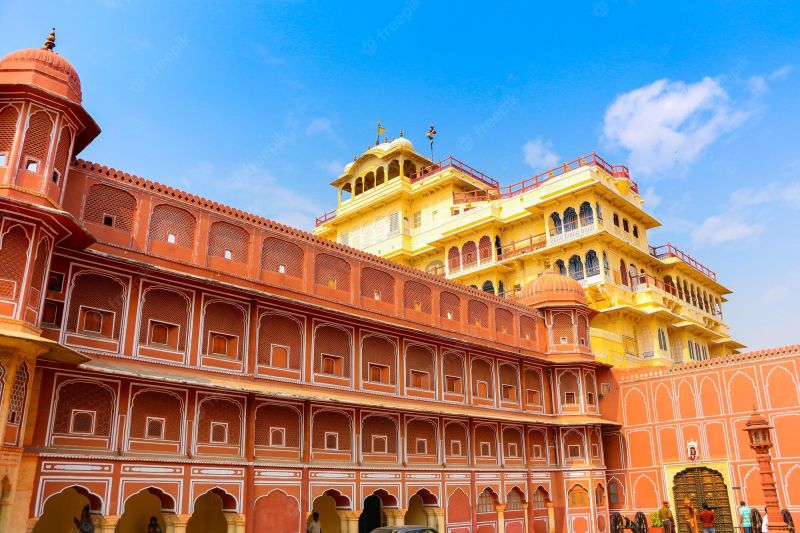
Jaipur City Palace is a beautiful amalgamation of Mughal and Rajasthani architecture located in the heart of Jaipur. The palace complex consists of various courtyards, gardens, and buildings that are a testimony to the rich cultural heritage of Rajasthan. The palace museum houses a collection of royal artifacts, including costumes, weapons, and paintings. The intricately designed gates, the stunning Chandra Mahal, and the Mubarak Mahal are some of the must-see places inside the palace complex. The palace is a true reflection of the opulent lifestyle of the royals of Rajasthan.
Visitor Information:
- Timings: 9:30 am – 7:30 pm
- Tickets: Indians – Rs 100 (adults). Foreigners – Rs 700 (adults).
- Best Time to Visit: October to March. Morning is best to avoid crowds.
- How to Reach: Located in the heart of Jaipur. Autos and cabs easily available.
- Nearby Attractions: Jantar Mantar, Hawa Mahal, Govind Devji Temple.
- Special Experience: Royal Grandeur tour, night visit, and the Peacock Gate in the courtyard for photography.
2. Rambagh Palace, Jaipur:
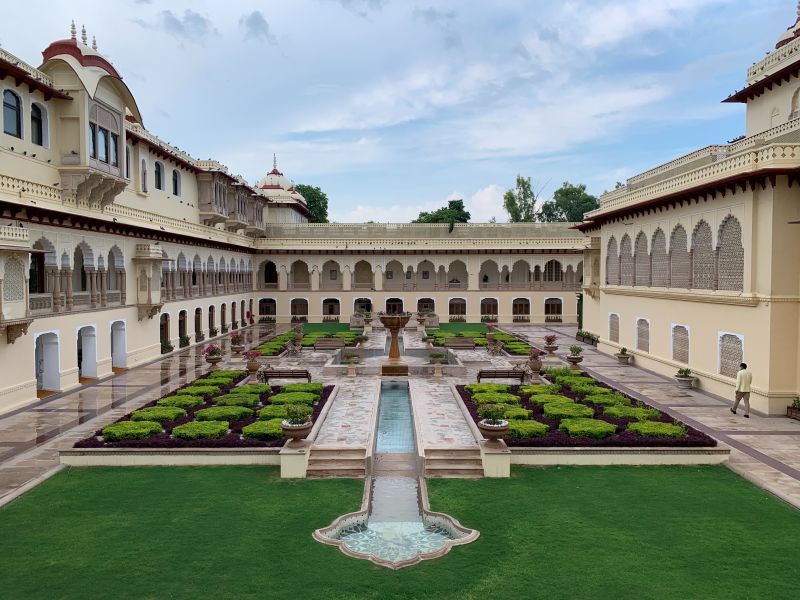
Rambagh Palace in Jaipur is a grand heritage hotel that was once the residence of the Maharaja of Jaipur. The palace is spread across 47 acres of lush gardens and is known for its stunning architecture, exquisite interiors, and royal service. The palace has 79 luxurious rooms and suites, each decorated with original artifacts and antiques. The palace also has a beautiful spa, a polo bar, and a fine dining restaurant. The gardens of the palace are a treat to the eyes and the palace is a perfect blend of old-world charm and modern luxury.
Visitor Information:
- Best Time to Visit: October to March (peak season for heritage stays).
- How to Reach: About 4 km from Jaipur railway station, 10 km from airport. Easily reachable by cab/auto.
- Nearby Attractions: Albert Hall Museum, Moti Dungri Temple, Birla Mandir.
- Special Experience: Polo Bar, luxury dining at Suvarna Mahal, staying like royalty.
3. City Palace, Udaipur:
City Palace in Udaipur is a magnificent palace complex situated on the banks of Lake Pichola. The palace complex consists of several palaces, courtyards, and gardens that reflect the opulence of the Mewar dynasty. The palace museum houses a collection of rare paintings, costumes, and artifacts that provide a glimpse into the royal lifestyle of the Mewar dynasty. The Mor Chowk, Sheesh Mahal, and Zenana Mahal are some of the must-see places inside the palace complex. The palace is an architectural masterpiece and a must-visit destination for history buffs and architecture enthusiasts.
Visitor Information:
- Timings: 9:00 am – 9:00 pm.
- Tickets: Rs 400 (Indians), Rs 100 (child).
- Best Time to Visit: October to March.
- How to Reach: Located in Udaipur city, near Lake Pichola. 3 km from railway station, 24 km from airport.
- Nearby Attractions: Lake Pichola, Jagdish Temple, Bagore ki Haveli.
- Special Experience: Light & Sound Show at Manek Chowk, panoramic lake views from palace balconies.
4. Lake Palace, Udaipur:
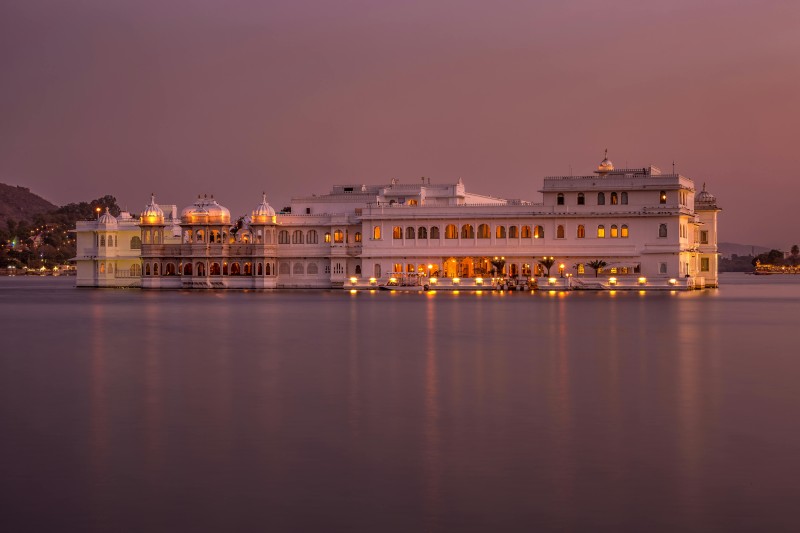
Lake Palace in Udaipur is a stunning palace situated on an island in the middle of Lake Pichola. The palace was built in the 18th century as a summer palace for the Maharaja of Udaipur and has now been converted into a luxury hotel. The palace has 83 luxurious rooms and suites, each offering breathtaking views of the lake and the Aravalli hills. The palace has a beautiful spa, a rooftop restaurant, and a bar. The palace is a perfect blend of luxury and tranquility and is a must-visit destination for those looking for a unique and unforgettable experience.
Visitor Information:
- Best Time to Visit: October to March, when Lake Pichola is full and views are magical.
- How to Reach: Located in Lake Pichola, reached by boat from City Palace jetty.
- Nearby Attractions: City Palace, Jagdish Temple, Bagore ki Haveli, Sajjangarh (Monsoon Palace).
- Special Experience: Staying in one of the world’s most romantic hotels, dining by the lake, boat rides at sunset.
5. Monsoon Palace, Udaipur:
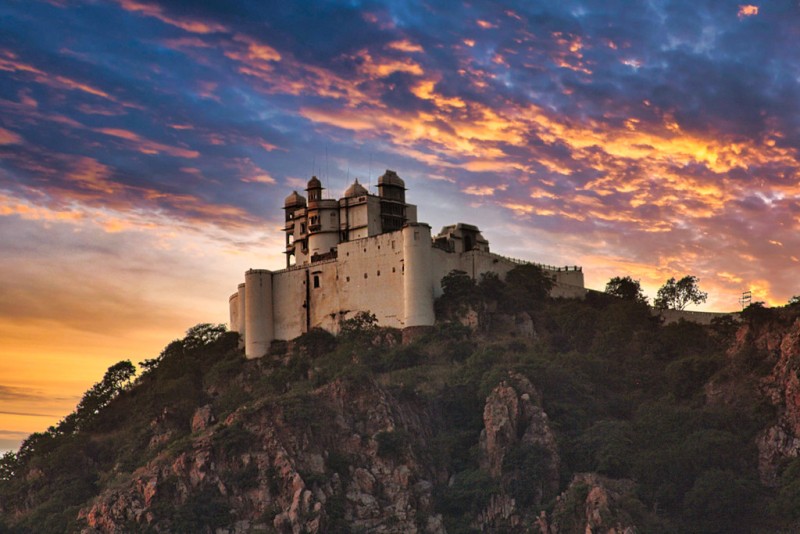
Monsoon Palace in Udaipur is a breathtaking palace located on a hilltop that offers panoramic views of the city and the surrounding Aravalli hills. This palace is famous for its stunning architecture, built during the reign of Maharana Sajjan Singh. The palace also served as a summer retreat for the royal family during the monsoon season. The palace’s interiors are adorned with intricate carvings, beautiful paintings, and exquisite mirror work. Visitors can explore the various courtyards, gardens, and halls within the palace and immerse themselves in the grandeur of Rajasthan’s royal heritage.
Visitor Information:
- Timings: 9:00 am – 6:00 pm.
- Tickets: Rs 120 (Indians), Rs 500 (foreigners)
- Best Time to Visit: Sunset is the best time; October to March is pleasant.
- How to Reach: About 7 km from Udaipur city, taxis and autos available. Road goes uphill.
- Nearby Attractions: Sajjangarh Wildlife Sanctuary, Fateh Sagar Lake, Lake Pichola.
- Special Experience: Breathtaking sunset view over lakes and hills. Palace lights up beautifully in evening.
6. Jag Mandir Palace, Udaipur:
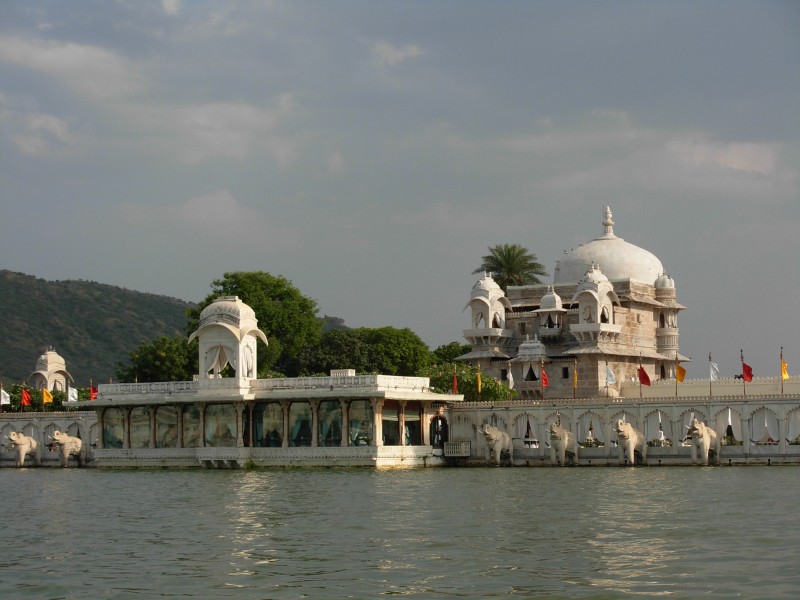
Jag Mandir Palace in Udaipur is a stunning palace situated in the middle of Lake Pichola. This palace is famous for its unique design, blending Mughal and Rajput architecture. It was built during the reign of Maharana Jagat Singh and served as a summer palace for the royal family. The palace boasts of beautiful courtyards, pavilions, and gardens, all adorned with exquisite carvings and intricate designs. Visitors can also explore the stunning Gul Mahal, the grand Darikhana, and the beautiful Kunwarpada Chowk, each a testament to the palace’s grandeur.
Visitor Information:
- Timings: 10:00 am – 6:00 pm.
- Best Time to Visit: October to March.
- How to Reach: Located on Lake Pichola. Reached by boat from City Palace jetty.
- Nearby Attractions: Lake Palace, City Palace, Bagore ki Haveli.
- Special Experience: Dining at the Darikhana restaurant, exploring Gul Mahal, and enjoying lake views.
7. City Palace, Banswara:
City Palace in Banswara is a magnificent palace located in the heart of the city. This palace is famous for its beautiful architecture, showcasing a blend of Rajput and Mughal styles. The palace is spread over several acres and consists of several courtyards, gardens, and halls. Visitors can explore the beautiful Moti Mahal, the stunning Darbar Hall, and the intricate Chini Chitrashala. The palace also houses a museum that displays several artifacts, including weapons, paintings, and sculptures, providing a glimpse into the rich history of Banswara.
Visitor Information:
- Timings: 8:00 am – 6:00 pm.
- Best Time to Visit: October to February.
- How to Reach: Located in Banswara city, about 160 km from Udaipur. Accessible by cab or bus.
- Nearby Attractions: Anand Sagar Lake, Madareshwar Temple, Kagdi Pick Up Weir.
- Special Experience: Museum inside with paintings and sculptures, views of the town from palace terrace.
Also Read: Top 7 Luxurious Resorts In Udaipur Perfect For A Lavish Office Staycation
8. Alwar City Palace, Alwar:
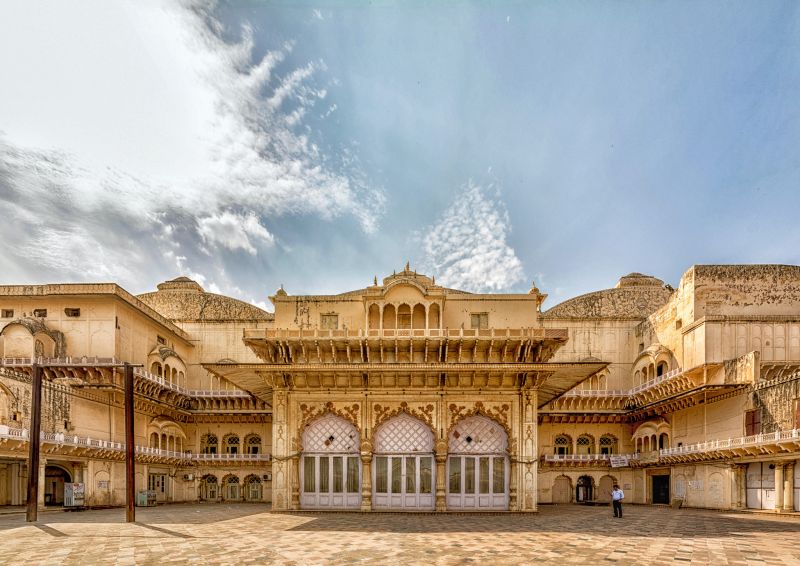
Alwar City Palace is a magnificent palace located in the heart of Alwar. This palace is famous for its beautiful architecture, showcasing the blend of Rajput and Islamic styles. The palace was built in the 18th century by Maharaja Bakhtawar Singh and served as the royal residence. Visitors can explore the beautiful Sheesh Mahal, the grand Diwan-i-Aam, and the stunning Tijara Gate. The palace also houses a museum that displays several artifacts, including weapons, paintings, and sculptures, providing a glimpse into the rich history of Alwar. A visit to this palace is a must for anyone interested in Rajasthan’s rich cultural heritage.
Visitor Information:
- Timings: 10:00 am – 5:00 pm.
- Tickets: Around Rs 5 (Indians), Rs 50 (foreigners).
- Best Time to Visit: November to February.
- How to Reach: In the heart of Alwar, about 4 km from railway station. Easily reachable by cab or auto.
- Nearby Attractions: Bala Quila (Alwar Fort), Siliserh Lake, Sariska Tiger Reserve.
- Special Experience: Sheesh Mahal, museum with Mughal and Rajput artifacts, and grand courtyards.
9. Umaid Bhawan Palace, Jodhpur:
The Umaid Bhawan Palace in Jodhpur is a magnificent palace that exudes the grandeur of a bygone era. It is famous for its impressive architecture, intricate carvings, and sprawling gardens. The palace has 347 rooms, several courtyards, and a stunning indoor swimming pool. Visitors can explore the museum inside the palace, which showcases a vast collection of antique clocks, weapons, and photographs. The palace also has a luxurious hotel, where guests can experience the opulence of a royal lifestyle.
Visitor Information:
- Best Time to Visit: October to March.
- How to Reach: About 5 km from Jodhpur railway station, 3 km from airport.
- Nearby Attractions: Mehrangarh Fort, Jaswant Thada, Mandore Gardens.
- Special Experience: Staying at one of the world’s largest private residences, vintage car display, and museum visit.
10. Deeg Palace, Bharatpur:
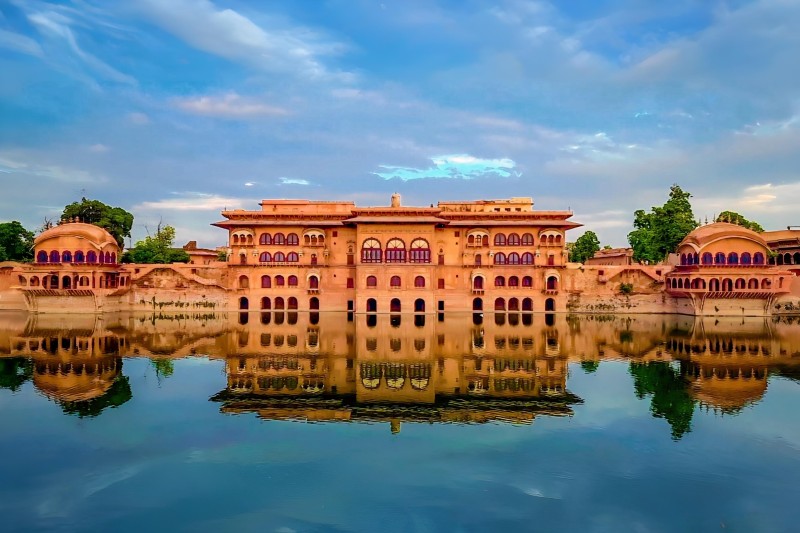
The Deeg Palace in Bharatpur is a beautiful palace that is famous for its stunning architecture and magnificent gardens. The palace was built in the 18th century and has several buildings, including a summer palace, a water palace, and a hunting lodge. The gardens are a sight to behold, with their intricate water systems, fountains, and lush greenery. Visitors can explore the various buildings and gardens and get a glimpse into the opulent lifestyle of the royals who once lived here.
Visitor Information:
- Timings: 9:00 am – 5:00 pm. Closed on Fridays.
- Tickets: Rs 25 (Indians), Rs 300 (foreigners).
- Best Time to Visit: October to February
- How to Reach: About 37 km from Bharatpur city. Easily reached by cab or local buses.
- Nearby Attractions: Lohagarh Fort, Bharatpur Bird Sanctuary (Keoladeo National Park).
- Special Experience: Mughal-style gardens, water fountains, and beautiful pavilions.
11. Chhattar Mahal, Palace of Towers, Bundi:
The Chhattar Mahal, also known as the Palace of Towers, is a majestic palace in Bundi that is famous for its exquisite architecture and intricate carvings. The palace has several courtyards and buildings, each with its unique style and design. Visitors can explore the various rooms, which are adorned with beautiful frescoes and paintings. The palace also has a stunning terrace, which offers panoramic views of the surrounding landscape.
Visitor Information:
- Best Time to Visit: October to February.
- How to Reach: Located in Bundi town, 3 km from railway station. Kota is nearest big city (35 km).
- Nearby Attractions: Taragarh Fort, Raniji ki Baori, Sukh Mahal.
- Special Experience: Stunning murals and frescoes, Bundi-style paintings, and panoramic terrace views.
12. Lalgarh Palace, Bikaner:
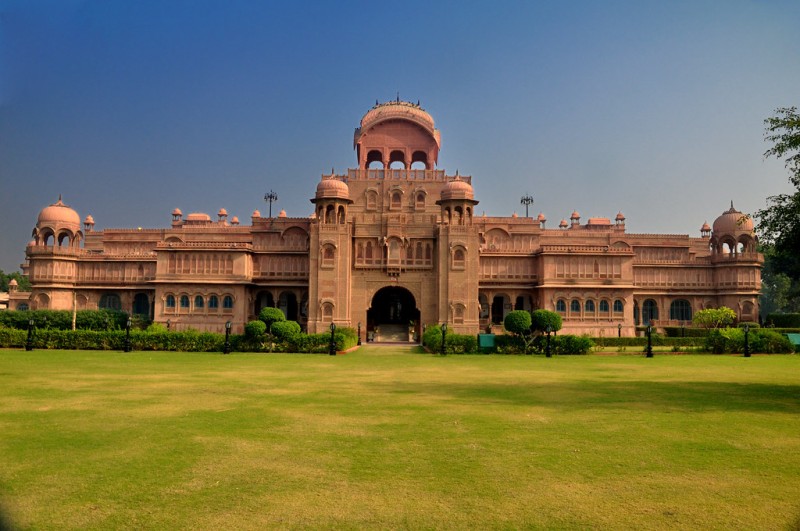
The Lalgarh Palace in Bikaner is a magnificent palace that is famous for its blend of Rajput, Mughal, and European architecture. The palace has several courtyards, each with its unique design and style. Visitors can explore the various rooms, which are adorned with intricate carvings, frescoes, and paintings. The palace also has a museum that showcases a vast collection of photographs, paintings, and artifacts from the royal family.
Visitor Information:
- Best Time to Visit: November to February.
- How to Reach: About 5 km from Bikaner railway station.
- Nearby Attractions: Junagarh Fort, Karni Mata Temple, Gajner Palace.
- Special Experience: Blend of Rajput, Mughal and European architecture, museum with royal family collection, and staying in the heritage hotel.
13. Udai Bilas Palace, Dungarpur:
The Udai Bilas Palace in Dungarpur is a stunning palace that is famous for its intricate architecture and luxurious interiors. The palace has several courtyards and buildings, each with its unique style and design. Visitors can explore the various rooms, which are adorned with exquisite carvings, paintings, and frescoes. The palace also has a beautiful swimming pool and a stunning terrace that offers breathtaking views of the surrounding landscape. The palace has been converted into a luxurious hotel, where guests can experience the opulence of a royal lifestyle.
Visitor Information:
- Timings: Entry mainly for hotel guests. Visitors allowed with prior booking at restaurant.
- Tickets: No general entry fee. Room tariffs start around ₹7,000–₹12,000 per night.
- Best Time to Visit: October to March.
- How to Reach: About 120 km from Udaipur, 45 km from Banswara. Cabs and buses available.
- Nearby Attractions: Juna Mahal, Gaib Sagar Lake, Badal Mahal.
- Special Experience: Heritage stay, palace interiors with frescoes, lake views from terrace.
Historical Significance of Rajasthan Forts & Palaces:
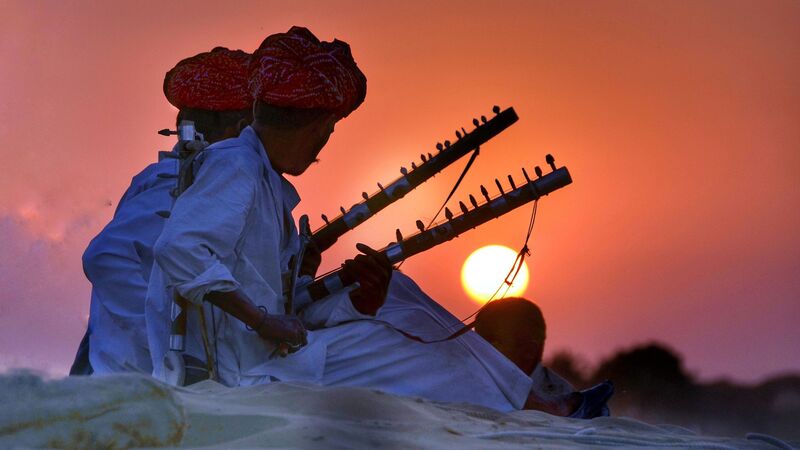
The forts and palaces of Rajasthan hold an immense historical significance in India, having withstood the test of time and serving as a witness to the state’s glorious past. These magnificent structures served as a mode of protection for the royal families and their kingdoms, standing tall and majestic, surrounded by towering walls and moats. The forts, with their imposing ramparts and intricate carvings, narrate stories of valour, conquest, and the culture of the region.
The palaces, on the other hand, were not just the residence of the royal family but also a statement of their grandeur and opulence. The palace interiors were often adorned with beautiful frescoes, paintings, and delicate artwork, showcasing the talent and creativity of the craftsmen of that era. The architecture of the palaces often reflected the taste and preferences of the ruling family, with each palace having its unique style and charm.
Visitors to Rajasthan can explore these forts and palaces, marveling at the beautiful artwork, and taking in the stories of the past. The grandeur of these structures is awe-inspiring, transporting visitors to a different time and era. The intricate artwork, imposing ramparts, and delicate carvings are a testament to the talent and creativity of the craftsmen of that era. A visit to these forts and palaces is a must for anyone who wishes to explore the history of India and the culture of Rajasthan.
Role of Forts and Palaces in Rajput Culture:
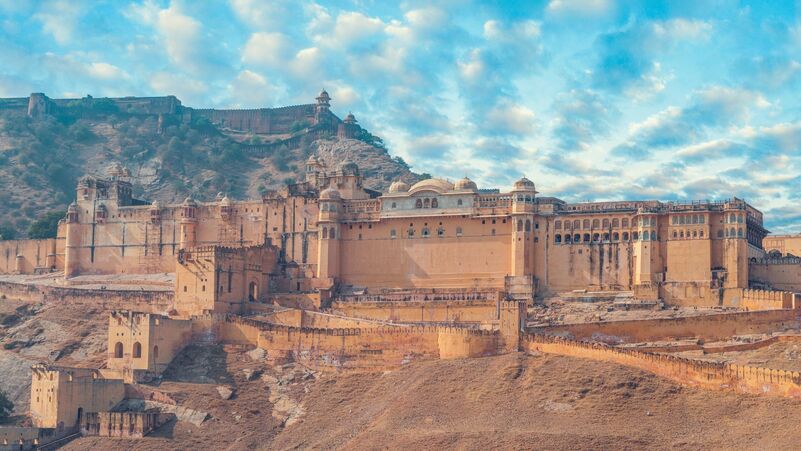
Forts and palaces have been an integral part of Rajput culture for centuries, symbolizing their pride, honour and loyalty. They were not just a mode of protection but also a statement of their grandeur and opulence. These structures were built with utmost care and precision, using the best materials and craftsmanship. Every fort and palace served a unique purpose and had a story to tell, be it the imposing Chittorgarh Fort or the elegant Lake Palace in Udaipur. The palaces were not only the residence of the royal family but also a symbol of their wealth and social status.
Influence of Mughal and British Architecture on Rajasthan’s Forts and Palaces:
Rajasthan’s forts and palaces have been influenced by various architectural styles over the years, including the Mughal and British eras. The Mughals brought with them the art of intricate carvings and decorative motifs, which can be seen in the beautiful palaces of Jaipur and Udaipur. Similarly, the British introduced modern architectural elements, such as iron and steel, which were incorporated into the designs of many forts and palaces, including the magnificent Junagarh Fort in Bikaner. These influences have added a unique charm to Rajasthan’s heritage, making it a blend of different cultures and styles.
Elements of Rajasthani Architecture:
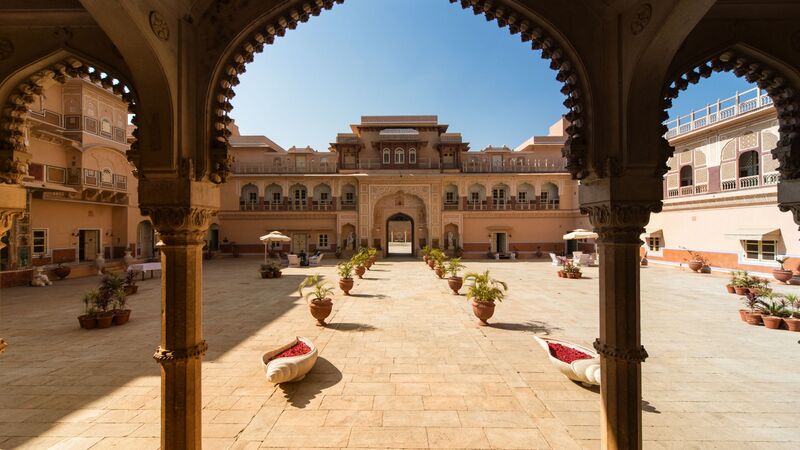
I can attest to the sheer beauty and grandeur of the state’s architecture. The elements of Rajasthani architecture are truly awe-inspiring, with intricate carvings, delicate jharokhas, and towering minarets adorning the structures. Each fort and palace in Rajasthan is unique in its design and has a fascinating history to tell.
Characteristics of Rajasthani Forts and Palaces’ Designs:
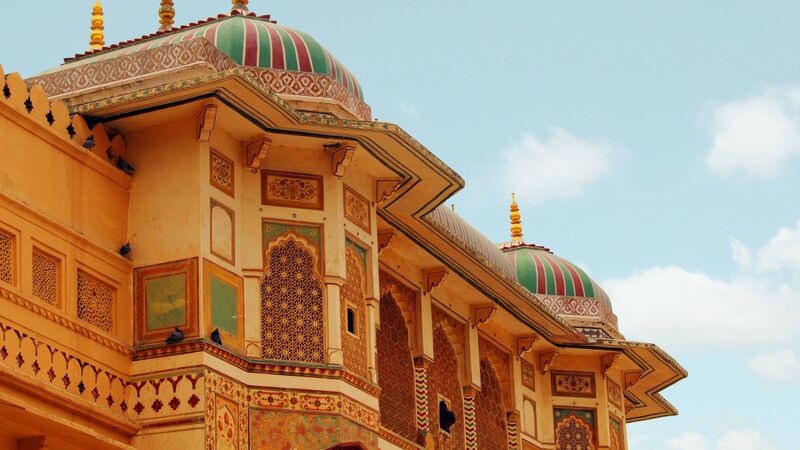
The forts of Rajasthan are renowned for their imposing structure and impenetrable walls, with some of the most famous ones being Amer Fort, Jaisalmer Fort, and Mehrangarh Fort. Amer Fort is a stunning blend of Mughal and Rajput architecture and boasts of several attractions, including the Sheesh Mahal, Diwan-e-Khas, and Sukh Niwas. Jaisalmer Fort, also known as the Golden Fort, is a UNESCO World Heritage Site and is famous for its intricate carvings and unique blend of Hindu and Islamic styles. Mehrangarh Fort, situated in Jodhpur, is one of the largest forts in India and houses several museums, including the Royal Palace Museum, that are worth exploring.
The palaces of Rajasthan, on the other hand, are renowned for their grandeur and luxury. The City Palace in Jaipur, Umaid Bhawan Palace in Jodhpur, and Lake Palace in Udaipur are some of the most famous ones. The City Palace is a beautiful blend of Mughal and Rajput architecture and houses several museums, including the Textile Museum and the Armoury Museum. Umaid Bhawan Palace is one of the largest private residences in the world and is a stunning example of Art Deco architecture. Lake Palace, situated in the middle of Lake Pichola, is a sight to behold and is famous for its stunning white marble architecture and serene surroundings.
Use of Materials and Colors in Rajasthani Architecture:
The use of materials and colors in Rajasthan architecture is truly breathtaking. The sandstone used in the forts and palaces gives them a warm, golden glow, while the intricate carvings and frescoes add a splash of color and vibrancy. The Hawa Mahal in Jaipur is a prime example of the use of color in Rajasthani architecture, with its pink sandstone facade and delicate latticework. The blue city of Jodhpur is famous for its blue-painted houses, while the yellow sandstone used in the Jaisalmer Fort gives it a golden hue.
In short, the forts and palaces of Rajasthan are truly a sight to behold, with their intricate designs, rich history, and stunning architecture. Whether you’re a history buff, an architecture enthusiast, or simply looking to marvel at the beauty of these structures, Rajasthan is a must-visit destination.
Current State of Tourism in Rajasthan’s Forts and Palaces:

The forts and palaces of Rajasthan are a breathtaking sight to behold, boasting stunning architecture and rich history. Tourism to these grand structures is thriving, attracting visitors from all corners of the world. Each fortress has its unique charm and appeal, with hidden nooks and crannies waiting to be explored. Some boast exquisite carvings, while others boast intricate designs and decorations. Many offer sweeping views of the surrounding countryside, while others invite you to step back in time and imagine what life was like for the royal families who once lived within their walls. No matter which fort or palace you choose to visit, you are sure to be captivated by the beauty and wonder of Rajasthan’s architectural treasures.
Popular Tourist Attractions and Activities:
The popular tourist attractions and activities in Rajasthan’s forts and palaces include exploring the vibrant markets of Jaisalmer Fort, experiencing the grandeur of the City Palace in Jaipur, and taking a camel safari around the Jodhpur Fort. The Mehrangarh Fort Museum in Jodhpur, the light and sound show at Amber Fort, and the grandeur of the Hawa Mahal in Jaipur are also top-rated tourist spots. Visitors can also enjoy traditional Rajasthani dance performances, indulge in mouth-watering local delicacies, and witness the majestic sunset from the Nahargarh Fort in Jaipur.
Challenges Faced by Tourism Industry in Rajasthan:
Despite the thriving tourism industry, Rajasthan’s forts and palaces face several challenges. Preservation of these ancient monuments is a significant concern, with many of them showing signs of decay due to neglect and weathering. There is also a need to balance the influx of tourists while maintaining the serenity of these historical sites. Additionally, the lack of adequate infrastructure at few places and the extreme heat conditions in summer months, are another challenge that the state faces. Nevertheless, the tourism industry in Rajasthan is working towards tackling these challenges and providing visitors with an unforgettable experience while preserving the state’s cultural heritage.
Final Thoughts:
Rajasthan is home to some of the most magnificent forts and palaces in India. Each one tells a unique story of a bygone era and stands as a testament to the grandeur and opulence of the Rajput kings who built them. The Amber Fort in Jaipur is a stunning example of Rajput architecture, with intricate carvings and stunning mirror work. The Mehrangarh Fort in Jodhpur is another must-visit, with its imposing walls and breathtaking views of the city. The Umaid Bhawan Palace in Jodhpur is also worth a visit, with its luxurious interiors and sprawling gardens. Other notable forts and palaces include the City Palace in Udaipur, the Chittorgarh Fort, and the Hawa Mahal in Jaipur.
The forts and palaces of Rajasthan are not just architectural marvels, but also hold immense cultural and historical significance for India. They are a testament to the valor and bravery of the Rajput kings who built them, and serve as a reminder of the rich cultural heritage of the state. These structures have stood the test of time and continue to attract visitors from all over the world, who come to admire their beauty and learn about the rich history of the region. They are an integral part of India’s cultural identity and serve as a symbol of its glorious past.
FAQs:
The best time is from October to March, when the weather is cool and pleasant. Summer months can be very hot and not comfortable for sightseeing.
Yes, most forts and palaces have entry tickets with different rates for Indians and foreigners. Some luxury heritage hotels like Lake Palace and Rambagh Palace allow only guests or restaurant visitors.
Kumbhalgarh Fort has the second-longest continuous wall in the world after the Great Wall of China. It stretches for 36 km around the fort.
Normally, 2 to 3 hours are needed to explore a fort properly. For bigger ones like Chittorgarh Fort or Mehrangarh Fort, you may need half a day.
The Lake Palace in Udaipur, built in the middle of Lake Pichola, is considered one of the most romantic palaces in the world.
Yes, local guides are easily available at all major forts and palaces. They explain history in detail and also show hidden spots that tourists might miss.

